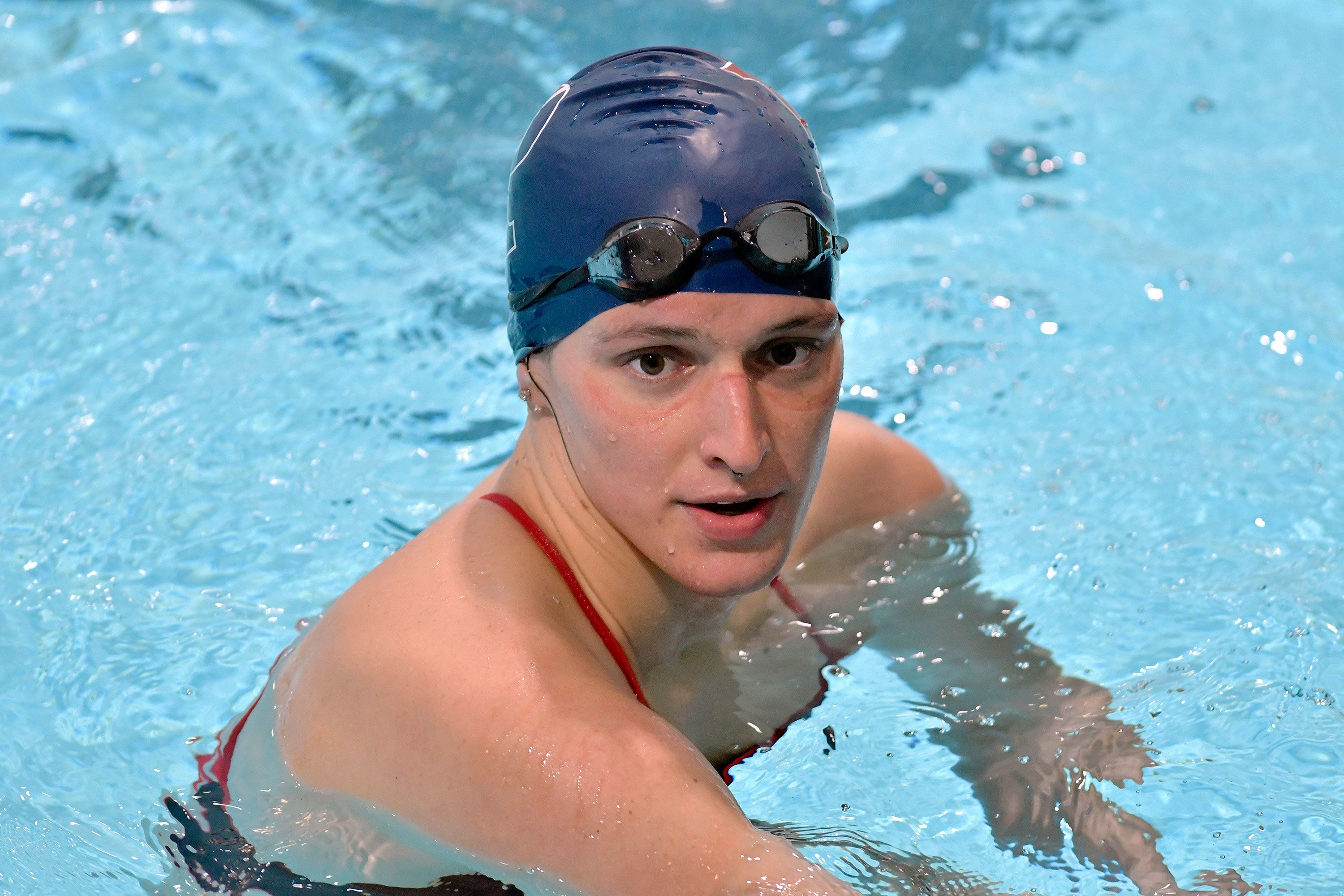A high school girls’ swim team has decided not to compete against a biological male swimmer in an upcoming competition. They believe this creates an unfair advantage, sparking heated debate among athletes, parents, coaches, and lawmakers nationwide.

The controversy began when a male swimmer, who identifies as female, was allowed to compete in a state-level swim meet against the girls. Reports show this swimmer has been breaking records in women’s events, prompting the girls to voice their concerns. In a statement, they said:
“It’s not fair. We’ve worked hard for years, and seeing someone with a biological advantage compete against us is disheartening.”

This decision has divided opinions. Supporters of the team call it a stand for fairness in women’s sports, while critics argue it discriminates against transgender athletes.
Both Sides of the Debate
Supporters argue that biological males, even with hormone therapy, retain physical advantages like greater strength and endurance. They say this impacts the integrity of women’s sports. A parent shared:
“We believe in equality, but fairness means our girls shouldn’t compete against someone with a clear physical advantage.”
On the other hand, advocates for transgender inclusion argue that transgender women following hormone treatments should compete in women’s categories. They emphasize the importance of inclusion, equal rights, and fostering acceptance.

Legal and Political Implications
This issue extends beyond the swimming pool. States have introduced laws supporting or banning transgender athletes from competing in gender-affirmed categories. These debates have reached courtrooms, with both sides pushing for a resolution.
Some lawmakers support the team’s decision, viewing it as protecting women’s sports. Others criticize it, warning that such actions might increase division in the sports community.
This case brings attention to the broader challenges between fair competition and inclusion. Sports organizations like the NCAA have introduced guidelines to balance fairness and inclusion, but the debate continues.
The girls’ decision places them at the center of a national conversation about fairness in sports. The outcome could influence future policies on transgender athletes and their role in competitive sports.
